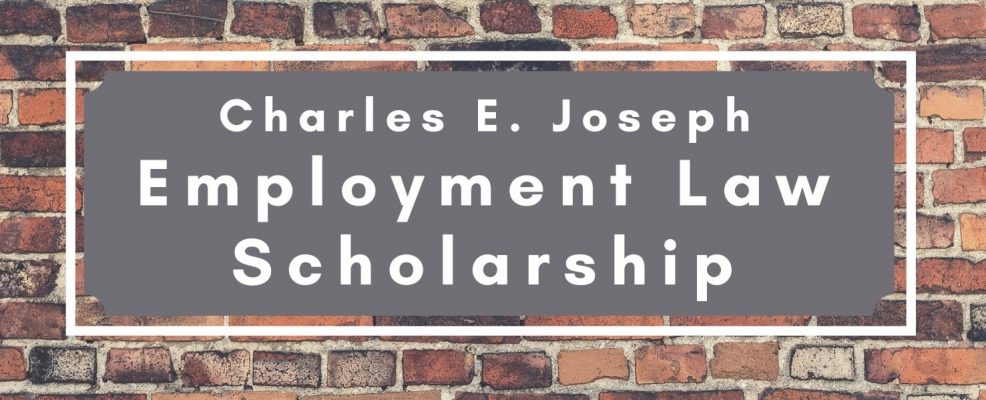
The 2025 Rollback of Discrimination Protections
August 5, 2025
The 2025 Rollback of Discrimination Protections
By Lindsay Broderick
The Law Students on Workers’ Rights series publishes essays from current and incoming students from top law schools across the country. These essays, submitted for the Charles E. Joseph Employment Law Scholarship, address the question “What is the most significant challenge facing workers’ rights, and what role should employment attorneys play in addressing that challenge?”
The United States has never been a nation sympathetic to the plight of the worker. And the current administration has proven itself to be no exception. Instead, it has demonstrated a particular animosity towards diversity in the workplace. From painting over messages of diversity and inclusivity at the FBI headquarters, to executive orders targeting some of the world’s most prominent law firms explicitly because of their DEI policy initiatives, the Trump administration has made it clear that one of their foremost priorities is to roll back any meaningful efforts to combat discrimination in American society.
On March 19, 2025, the Department of Justice and the EEOC released statements regarding DEI programs throughout the country. Though the statement begins, “Title VII of the Civil Rights Act of 1964 prohibits employment discrimination based on protected characteristics such as race and sex,” the rest of the statement reads as though DEI initiatives were created with a secret agenda to actually promote discriminatory race-based hiring, rather than combat it. The statement is a clear reflection of the conservative talking point that DEI and other diversity initiatives exist to push white Americans out of jobs.
According to the EEOC, the second most common form of discrimination in the workplace is race-based, making up 42% of all EEOC claims filed in 2024. It is difficult to read this data and follow the current administration’s trajectory and not predict an increase in race based discrimination in the workplace over the coming years.
Already we are seeing an emboldened bigotry that has long lived in the shadows of our society. In just the first 100 days of this administration, there has been a concerning number of public Nazi gatherings: with masked individuals shouting slurs and other hate speech whilst touting swastika appurtenances. Under federal leadership that openly detests diversity as though it were the eighth deadly sin, those who hold such bigoted beliefs will only feel further emboldened the longer Trump’s reign continues. The workplace is not currently, nor in the future will it be, a haven from such hate.
While the tides sway towards a less inclusive reality, there still exists means to defend against unfair treatment. Employment attorneys provide a crucial resource for workers facing discrimination. As the narrative against DEI continues to be pushed on a national level, employment attorneys should serve as both an educator and an advocate.
Employment attorneys possess valuable knowledge of and familiarity with employment law in the United States, knowledge and familiarity of which most Americans do not hold even a fraction. There have already been several government websites that have had various governing documents removed, including deleting the Constitution from the White House website. Who is to say that the next resource they target will not be anti-discrimination statutes?
Employment attorneys will be uniquely situated to fight the administration as it pushes its anti-diversity agenda. Beyond their own clients, it would be beneficial for employment attorneys to step up and provide workers with “know your rights” workshops. Similar to what has been offered to immigrants, these workshops could help educate the workforce on their protections. While this provides resources for workers, it also provides work for the attorneys, as workers who know their rights would have a better chance of identifying infringements thereof and seeking legal representation accordingly.
As advocates, employment attorneys also hold a significant responsibility in defending their own clients. In order to increase potential client interest in a firm, it should laud itself as inclusive and stand strongly against the thinly-veiled efforts by the administration to resuscitate rampant discrimination in America. Again, this move benefits both the clientele and the employment firm.
A firm that promotes inclusivity in its practices and external messaging is more likely to be seen as an ally of workers seeking representation in discrimination actions. By establishing shared values of equality and respect with potential clients, the firm will likely increase its retention rate of clients fighting for that very treatment of respect and equality by their own employers.
In the early days of Trump’s second term, the diminution of anti-discrimination policies has been at the forefront of his agenda. Now is the time for employment lawyers to promote workers’ rights through pro bono workshops and community events and to establish themselves as beacons of inclusion, respect, and equality in the workforce. Through these efforts, employment lawyers can cement themselves as ready resources for workers during a deeply uncertain time in American history.
Reflections from Charles Joseph
Rolling back discrimination laws puts workers everywhere at risk. With weaker discrimination laws, employees have fewer avenues to protect their rights. For example, workers cannot file a retaliation lawsuit after experiencing workplace discrimination if they have no right to a workplace free from discrimination.
Even when worker protections stand, the definition of a hostile work environment can change. Could a jury decide that workplace diversity initiatives create a hostile environment? In this changing landscape, employment lawyers are more important than ever.
Lindsay Broderick holds a bachelor’s in International Studies from American University. She has several years of experience as a litigation and appellate paralegal. Broderick will join the University of Iowa College of Law Class of 2028 in the fall.
Charles Joseph has over two decades of experience as an NYC employment lawyer. He is the founder of Working Now and Then and the founding partner of Joseph and Kirschenbaum, a firm that has recovered over $200 million for clients.